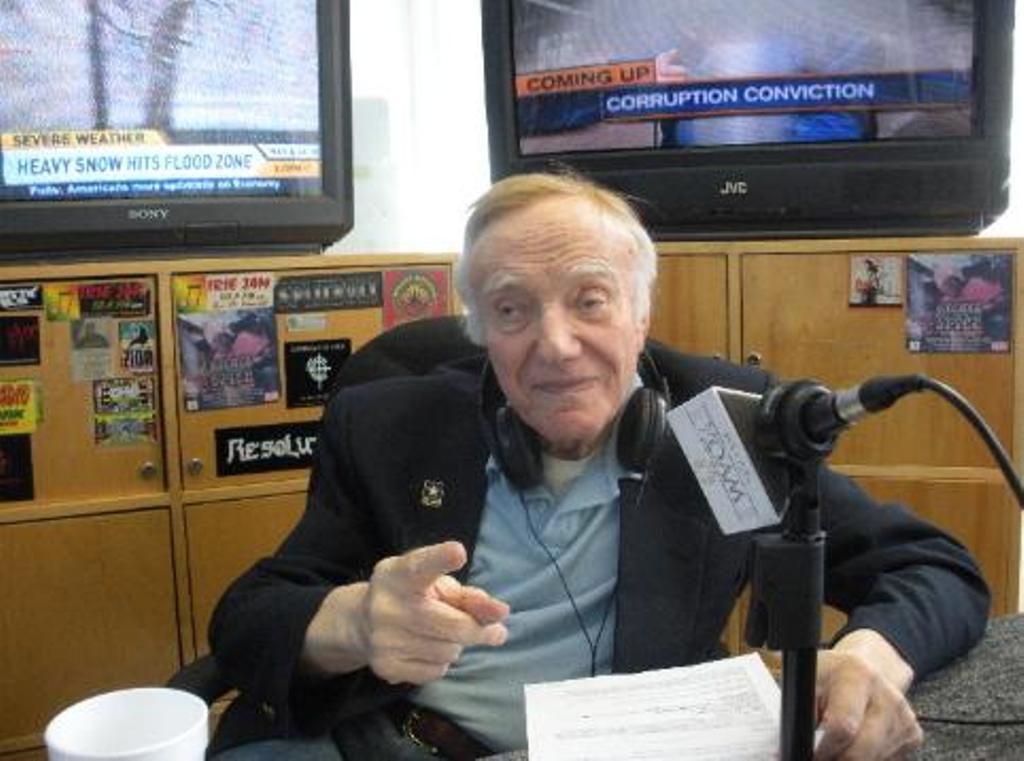|
Bill Mazer was a giant of sports broadcasting – and then his career kept going. Long after he was a sports maven in Buffalo and Milwaukee and New York, Mazer, as an octo-genarian, launched into a second career as radio general talk-show host.
We knew each other from the days when he described Cookie Gilchrist’s rushes and Henry Aaron’s home runs. Now, instead of recalling the great sports details (some would call them trivia), Mazer worked first for WEVD in New York and then for WVOX in suburban Westchester. Mazer, who died Wednesday at 92, was thoroughly admirable in his new life as he chatted about politics and medicine and education and anything else. I remember one time he had me waiting on the next line to babble about some sports theme while he finished up with somebody – as I recall, a brain surgeon. I was extremely impressed. Bill’s intelligence and curiosity had kicked in. He was able to guide the doctor into explaining the profession, and new developments in medicine. Bill did not need to assert his own memories of who pitched what game of what World Series. He asked wise questions and – believe me, not all interviewers are even adequate at this – he listened to the answers, and he responded to the twists and turns of conversation. He had his opinions. Once I launched sideways into a tirade about a political theme (no point going over it here) and I could tell he was quite unhappy with me. Still, he politely let me talk, and he politely offered his version, and we finished the chat civilly. (I don’t think he called me for a while, and that was fine, too.) It was not easy for Bill in his later years. He missed his wife, Dora, known as Dutch, who passed in 1996. She was a beautiful and serene lady who accompanied him to a lot of events, was a force in his life. Yet he continued to grow, with his actor son Arnie Mazer booking guests and running interference for him. Bill Mazer – like Bob Wolff, Roger Angell and Ray Robinson, ongoing nonagenarian giants and friends of mine – was a marvel. He became a role model for any of us who might want to re-invent ourselves. In the very long run, Bill Mazer was amazing. * * * For an appreciation of Bill Mazer’s career, please see the obituary by Richard Goldstein: http://www.nytimes.com/2013/10/24/sports/bill-mazer-a-sports-fixture-of-new-york-radio-and-tv-dies-at-92.html?_r=0
ray rankis
10/25/2013 05:41:06 am
i do not tweet. i do have a good friend who sends me george vecsey stuff, and it delights me greatly. have always enjoyed your work.. this bill mazer memory so hit the spot---and any mention of cookie gilchrist in the course of a day makes me wag my tail. thank you thank you thank you.
George Vecsey
10/25/2013 06:12:50 am
I am honored. A note like yours makes me glad to emit my little site. Arnie Mazer reminded me of Bill's affection for Gilchrist and Jack Kemp and Gerry Philbin from his Buffalo days.Thanks so much, GV
Hansen Alexander
10/26/2013 04:40:30 am
Just read your last 5 pieces here. As good as ever. Precise statements. Excellent description, particularly about soccer. Proves good writing has nothing to do with money.
George Vecsey
10/26/2013 05:03:29 am
Hansen, great to hear from you. I'll know I'm getting somewhere when you refute me....GV
Hansen Alexander
10/27/2013 02:00:44 am
Aw, come on, George, We agree on most things.
George Vecsey
10/27/2013 03:34:45 am
Absolutely. I am thrilled to see your name here. 11/4/2013 03:19:29 am
Bill Mazer was a gem among his contemporaries. I commuted 60 miles round trip, six days a week for 24 years. It was a joy to listen to Bill's calm voice and great insight. Comments are closed.
|
Categories
All
|










